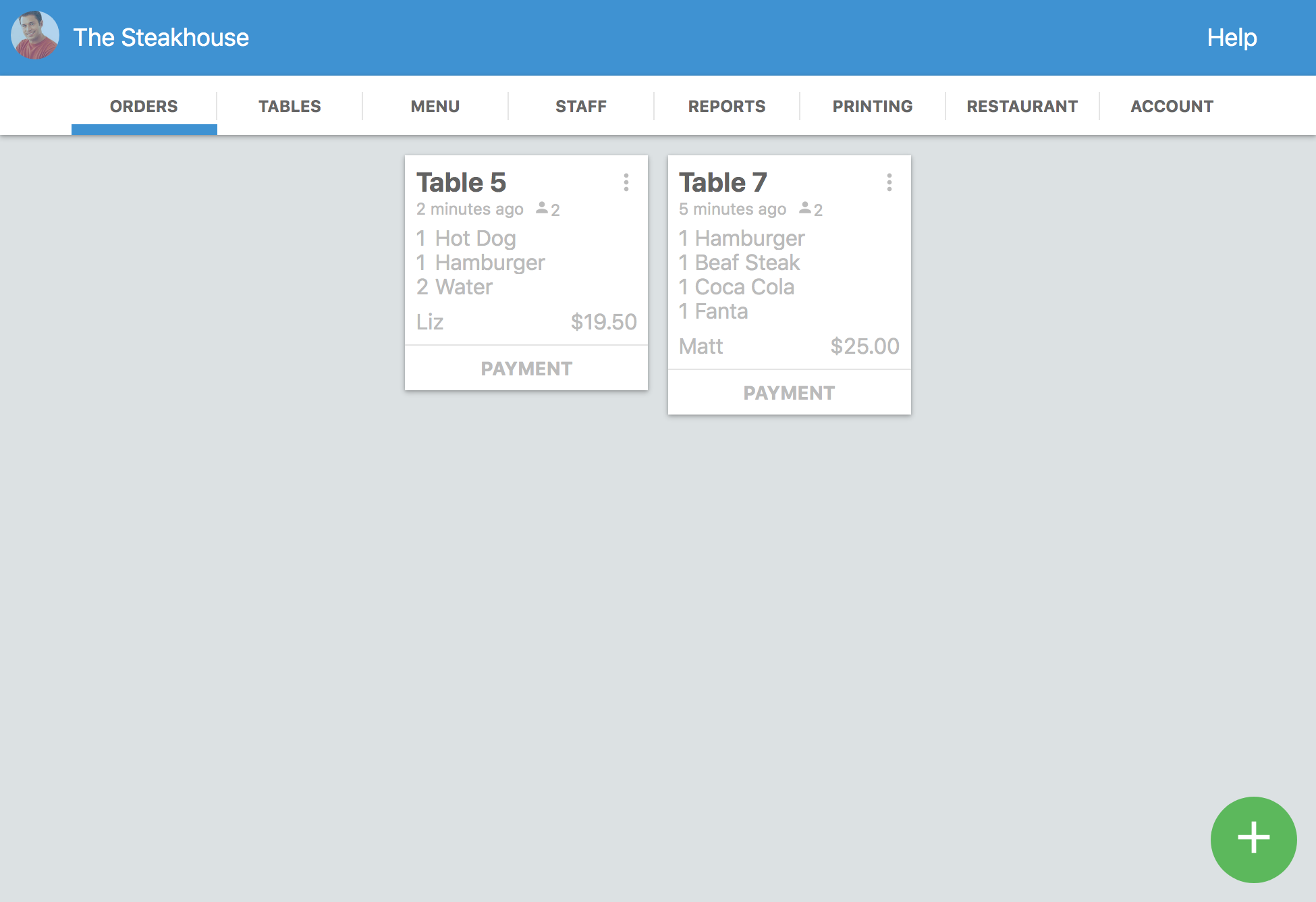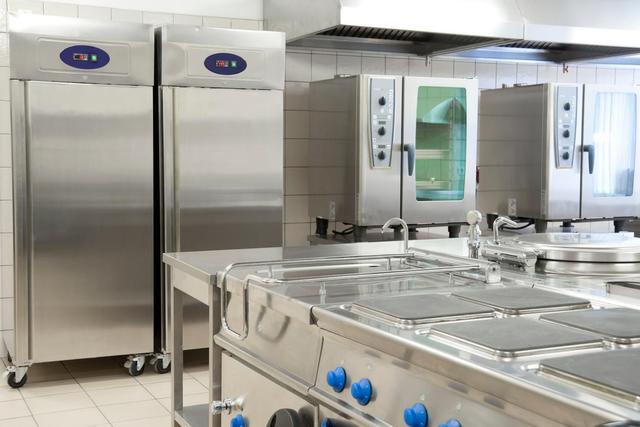There are two areas of managing a restaurant that every owner and manager must address. The first is managing the details of ordering food, keeping a clean restaurant, tracking inventory, marketing the restaurant, cooking consistently and ensuring food safety. The second area is often a harder job - managing customers and staff. Restaurant owners need to interact with their staff and customers to learn what they think, respond to their concerns and ensure that the staff members perform their duties according to their terms of employment.
Restaurateurs Wear Many Hats
Restaurateurs often work in every area of the restaurant, but some focus on the front-of-the-house or the back-of-the-house. It’s important to designate a manager in each area to carry out your management philosophy. In the kitchen, the chef might manage things, but in larger restaurants, a kitchen manager might handle the job. A strong manager can handle the restaurant’s day-to-day operations, but owners need to check the results regularly to prevent bad habits from developing. New information about supply prices, customer demographics and nearby disruptions due to construction projects could force you to reconsider your business plan. You might need to change menu prices, expand your targeted customer base or add alternative income streams such as catering or events marketing.
Managers or owners must also manage restaurant marketing. Traditional advertising platforms - although still effective for some restaurants - don’t work as well as they did for previous generations. These changes have forced restaurants to enter new promotional territories such as social media marketing, GPS promotions and many others. A recent survey In the United States found that 82% of customers use phones to find directions, locations and the operating hours of restaurants. About 75% go online to get menu information. Strong managers implement a multichannel advertising strategy to reach their best customers where they spend most of their time - online and on the phone.
Managing People Consistently and Effectively
Many restaurateurs prefer the back-of-the-house, but nobody can completely escape public relations. One U.S study at Ohio State University found that 60% of restaurants close or change ownership in the first year, and 80% of startups close within five years. That shouldn’t discourage you if you have good food, good service and a good location. That’s why preplanning your business strategy is so important. One of the things you need to plan is how you’ll manage your restaurant. Handling people tactfully, firmly and consistently can ensure a successful business.
Each employee needs to know his or her duties. That means training the staff in food preparation, customer service and cleanliness. Each employee should know how to deal with customer complaints and even turn them into opportunities. Most customers understand that things can go wrong. It’s how a restaurant deals with complaints that keeps them successful.
Dealing with Critical Issues and Those that Can Wait
Managers and owner/managers have different personalities. Although some managers yell at employees, that’s something that you should avoid, especially in front of other people. If you’re unhappy about something, you should schedule a meeting when business slackens to discuss the issue. Doing this consistently will prevent you from losing your temper. Most employees will understand that they’ve done something wrong and worry about it instead of responding defensively and triggering a shouting match.
Dealing with unhappy customers, however, is something that shouldn’t be delayed. If you’re busy, try to find someone to take over what you’re doing so that you can discuss the issue. Listen actively, and summarize what you think the customer means. You could be misinterpreting the complaint. Once you understand the issue, apologize for the restaurant’s culpability even if you’re unsure if the customer is right. The customer is always right when making a complaint. Promise to investigate further, write down the details and comp all or part of the customer’s meal. For serious problems, offer a generous incentive for another meal.
Building a Teamwork Culture
Some people discount the value of teamwork, and some restaurateurs rely on their best employees more than the part-time or minimum wage earners. However, working teams can deliver better results if they’re managed effectively. Even the best workers can quit their jobs for many reasons. That’s why creating a training program and assigning teams can improve workflow and cover other duties when the restaurant is short-staffed. Each staff member needs to know his or her duties and be familiar with what the other employees are doing. Some basic cross-training should be included for each employee so that he or she can jump in to help someone in the weeds.

Managing the Technical Operations
Your technical management duties are easier if you employ management software - CRM, ERP or both. These applications can manage inventory, keep track of supply prices, manage payroll, track cash flow and warn you when a menu item is becoming less profitable or not being ordered as often. However, restaurateurs on a budget can create lists on spreadsheets with the price of every item, current inventory, standard inventory, special needs and other details. A quick printout on inventory day can be adjusted for different suppliers that might deliver on different days.
CRM software can keep track of your regular customers, customize marketing messages and keep track of customer preferences such as favorite seating and preferred foods and beverages. You can record this information manually, but it’s a lot easier if you have CRM software to automate many of the processes. CRM software can also provide leads for customers who are likely candidates for special events marketing.
Food prices fluctuate widely, so it’s especially important to keep on top of price changes. Your POS system can track inventory and sales. This simplifies everyday management activities and allows owners and managers to see summaries of key areas on a daily basis. You can trim costs, identify waste and catch employee theft while speeding orders, payments and turnover rates.
Managing Special Events
Successful events at your restaurant take planning and management supervision. Organization is critical to success, but there will be things that don’t go according to plan. Holding special events at your restaurant works the same way as attracting customers. You must target leads, bid for city events, respond efficiently to inquiries and put in a procedure to record information about what kind of special event the customer wants. If you plan on running lots of special events, appointing an events manager can be a big advantage.
Successful restaurant owners involve their staff in the process of bidding for business. A good strategy is to organize some basic packages to give your guests and employees a starting point. Employees shouldn’t jot down information on a note or scrap of paper but keep the information in a dedicated binder or enter the details in the restaurant’s computer system. Try to offer event packages that are unique to your restaurant. Software can help in many ways by speeding price quotes and keeping track of available days and times.
Managing an events program can fill your restaurant on slow days and during slow seasons. However, there are always risks of last-minute cancellations. That’s why you should always require a nonrefundable deposit of 10% to 50%. The money will compensate you for planning, ordering extra food and blacking out the date for other potential bookings.
Management Is a Critical Function
Building a strong management system at your restaurant can take time - especially if you’re changing policies of the past. That’s why restaurateurs should plan their management strategy when they decide on the restaurant’s infrastructure and software. However, good management practices can be introduced in an ongoing restaurant - just don’t hit employees with too many changes too quickly unless you’re prepared to restaff the operation completely.





